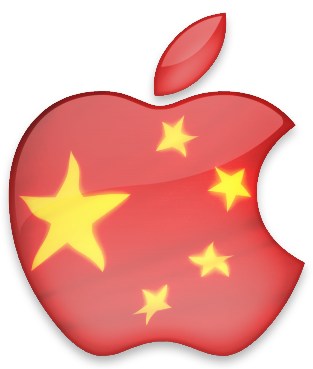The iPhone Maker’s Decline in the Chinese Market
Despite being the world’s biggest smartphone vendor in the last quarter (October-December), Apple has slipped to fifth position in the Chinese market. This is a significant decline, especially considering that the company had just launched its new iPhone 4S in China in January.
The iPad Trademark Dispute
Meanwhile, Proview, a financially-troubled computer maker, is claiming ownership of the iPad trademark in China for a device that bears an uncanny resemblance to an old iMac. The company has started demanding compensation for its troubles, although it has yet to put a figure on how much it would ask for. One of its creditors suggested a staggering $2 billion.
The Impact of iPhone 4S on Sales
While the launch of the iPhone 4S has garnered significant attention globally, it does not appear to have had a significant impact on sales in China just yet. According to regional figures from Gartner (via Reuters), Apple accounted for only 7.5 percent of sales in Q4, down from 10.4 percent in the previous quarter.
The Chinese Market’s Unique Challenges
Analysts believe that the iPhone 4S will not have a significant impact on sales in China as it has in other markets. One reason is the high price of the device, which sells for 4,988 yuan ($792), twice the average monthly salary in China. This pricing metric has been noted by companies like Huawei, whose smartphones can sell for a quarter of that amount.
Limited Distribution and Carrier Partnerships
Another challenge facing Apple in China is limited distribution and carrier partnerships. The company currently ships only with one carrier, China Unicom, which limits the availability of devices with carrier subsidies on that price. There have been reports that China Telecom, the country’s third-largest carrier, will soon be added to the list.
A Moving Target: Understanding the Chinese Market
China has 1 billion mobile users, but only around 102 million are using smartphones. This means there is still a long way to go before this market saturates, slows down, and becomes more predictable. The opportunities in China are undeniable, but Apple will need to navigate these challenges carefully if it wants to succeed.
The Rise of Local Brands and Cheaper Devices
It’s possible that the Chinese market may ultimately gravitate towards local brands and cheaper devices. Huawei, for example, has been gaining ground with its affordable smartphones. As the market continues to evolve, we can expect to see more competition from local players and a shift towards more affordable options.
The Future of Apple in China
While it’s difficult to predict exactly how the situation will unfold, one thing is certain: Apple faces significant challenges in the Chinese market. However, with careful strategy and adaptation to local conditions, the company may yet find success in this vast and growing market.
Conclusion
Apple’s decline in the Chinese market is a complex issue that requires careful analysis of various factors. While the launch of the iPhone 4S has garnered attention globally, its impact on sales in China remains unclear. The challenges facing Apple in China are numerous, including high prices, limited distribution, and competition from local brands and cheaper devices. However, with patience, strategy, and adaptation to local conditions, Apple may yet find success in this vast and growing market.
Recommendations for Apple
- Price Adjustment: Consider revising the pricing of the iPhone 4S to make it more competitive in the Chinese market.
- Expanded Distribution Channels: Partner with multiple carriers to increase availability and distribution of devices, including those with carrier subsidies on that price.
- Local Marketing Strategies: Develop marketing strategies tailored to local conditions, taking into account cultural preferences and consumer behavior.
- Investment in Local Manufacturing: Establish local manufacturing partnerships to reduce costs and improve supply chain efficiency.
By addressing these challenges and adapting to the unique conditions of the Chinese market, Apple may yet find success in this vast and growing market.
Sources:
- Gartner (via Reuters)
- Proview
- Huawei
- China Unicom
- China Telecom




